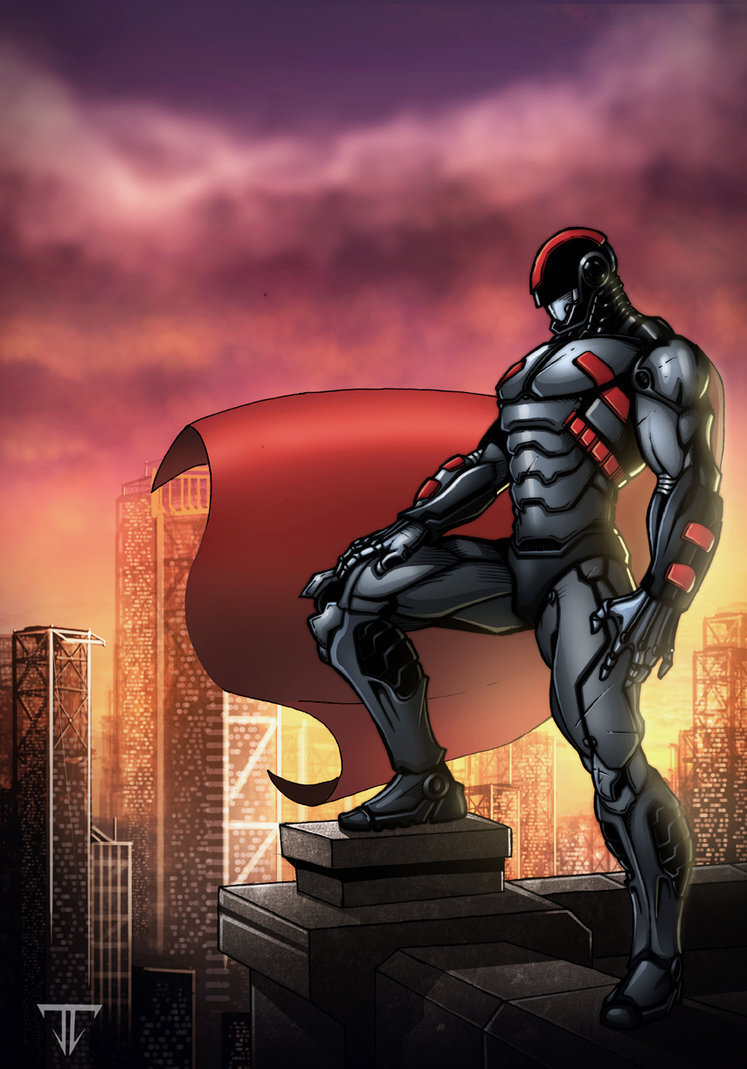How Do You Beat Up Your Players and Have Them Thank You for It?

In our most recent session, several super-powered criminals, some of whom were captured but the New Centurions, were being transferred from a temporary holding facility to a brand new UltraMax prison for Super criminals raised from the waters of Diamond Reef, just south of Manhattan. The Centurions were asked to provide an escort for the transfer. Many of their members were otherwise engaged, but those who were not stepped up.
Now, intent upon trying to recreate a fixture of comic books, I did a rather stupid thing. I set up the scenario for the players to lose - at least in part.
My goal was for the PCs to put up a spirited defense when the transports were attacked, but for things to go south long enough for some of the prisoners to escape, and others to be rescued by the attackers. The rest of the scenario relied on this, giving the Centurions a chance to track down the escapees, then those that were the actual goal of the attack, which would lead them into a confrontation with a major villain mastermind, an artificial intelligence called SPECTRUM.
Sounds kinda cool, right? In a comic book it could read pretty well. In a game, it has a serious problem.
PLAYERS DON'T LIKE TO LOSE.
OK, this is not exactly news. Who LIKES to lose.
Here is a list of things I did wrong - Things I should have known better than to do:
- I predicated later events on an outcome I could not control without being heavy-handed.
- I weighted the adversaries so that the fight would become more and more desperate over time.
- I set things up so that the player characters had limited control of the situation from the get go.
- I did not let the players in on the outcome I was looking for when the time was right, or even when it passed us by.
1. OK, this is so basic that I should kick myself. I forgot to allow the game to take its own form, based on what the characters do. No one likes being rail-roaded. The fact that I did it for the COOL is some excuse, but it was still a mistake.
2. By stacking the opposition, my intent was to show the players that they were outgunned and should consider endings other that outright victory for them. All it did was foster the feeling that maybe they were doing something wrong and should be winning if they were better players -exactly the opposite of what I wanted, which was to make them strive, do cool things [which each of them did] and ultimately fail - all to advance the PLOT.
3. By inviting the Centurions along on a mission by an agency, admittedly one which they have a working relationship with, I removed them from control of the scenario. My intend was to help the players feel like their characters were valued and a part of the world and its infrastructure against EVIL, if you know what I mean. Instead, I told them everything that was happening, allowing them only to decide where they were standing, or flying, or sitting, and what they did when it all went pear-shaped. Sigh. I just shake my head at my own folly.
4. When the fight was in its desperate later stages, there were a couple of 'save' moments, when I could have stopped the action and told the players what my goal was for the encounter, and worked together for how to bring it about. I did not see these 'save' moments until after they had come and gone.
FInally, with one of the character taken out for doing something really heroic, and the other two pretty beaten up, I halted things and explained what I was looking for. It went pretty well. The players, amazing folks all, went along with it without reservation. In return, I provided each of them with a Hero Die [in game currency for COOL moments] for pooching them, and we moved on.
One of the things I wanted to talk about in this blog was that this sort of scenario is troublesome in an RPG, while working just fine when the writer has total control of all the moving parts - including the heroes. I didn't want to share with the players for fear of giving away the story, but lost the story anyway, only salvaging things by talking to them about it anyway when it was a bit late. There are other situations from books that work in fiction but not in games. If you have gamed at all, you have surely been exposed to them. Puzzles or riddles, which are often only solvable by the player instead of the character; or mysteries, which can result in players haring off in the wrong direction because a clue that you thought was perfectly obvious and easy to interpret was either missed or misinterpreted.
Forcing a loss is another one. A set piece of fiction, comics and film. The hero[es] are defeated or suffer a setback, only to return for later triumph. Some games have mechanics to handle situations like this, but i have not found them particularly satisfactory. Still, at least they are an acknowledgement of the issue.
The reason I titled this post with a question was not just to peak your interest. It was also to invite participation. I want to know how to manage this better, and I am not too proud to ask the rest of you.
If you have some tips, leave them in the comments. Thanks.